Welcome to my blog!
Every morning, I begin with a cup of coffee and 15 minutes of free thinking. I write down everything that comes to mind, from new ideas to thoughts that emerged overnight. This is where I develop and refine my new research. You'll find some repetition and ideas still in progress. Some might seem unusual or unclear at first, but that's part of the journey! I'm excited to share how my ideas form and evolve.
Unpacking Collective Actions: From Atomic Responsibility to Social Justice
This post explores the nuanced dynamics of group versus individual accountability, particularly in historical and social justice contexts, emphasizing the complexity of attributing actions and consequences across different societal levels.
I'm trying to articulate a thought about levels of groups and find myself at a bit of a loss. It's not just that it's a complicated issue; it's that it's an old one, seen from many angles, yet I'm on the hunt for the perspective that best aligns with logical praxis. The problem, as elusive as it may feel, revolves around the interplay between group and individual responsibility—a term I'm hesitant to use, but it'll have to do for now. My aim is to dissect this notion without losing sight of the complexity and nuances involved.
In grappling with this intricate problem of attributing actions and consequences to groups versus individuals, we confront a perennial challenge that resonates across various domains of logical praxis. The crux of this issue, tough to articulate clearly, hinges on the nuanced distinction between collective and individual accountability. Take, for example, the assertion that the United States bears responsibility for the creation and use of the atomic bomb. Such a statement implicates a nation in collective actions, yet the degree of participation and accountability of its individuals varies significantly.
J. Robert Oppenheimer, as the leader of the Manhattan Project, undeniably played a pivotal role in the development of the atomic bomb, yet his direct responsibility for its use against Japan remains a complex question. While the United States as a nation is acknowledged for both developing the atomic bomb and its subsequent deployment, President Truman's responsibility diverges, focusing more on the decision to use the bomb rather than its development. This delineation underscores the challenge of attributing actions and responsibilities within a group without implicating all individuals in every action.
This problem extends into the realm of social justice, where groups are often held "responsible" for oppressing others - men over women, white people over people of color, straight people over the LGBTQ+ community, and colonial powers over indigenous populations. Drawing from critical theory, we learn about the mechanisms of oppression within these dualities and how they manifest across time and cultures. The "WSCM equation" – white, straight, cisgender, man – serves as a shorthand to encapsulate the multifaceted ways in which marginalization and oppression are perpetuated by dominant groups.
Yet, the question arises: at what level does this oppression operate? The retort "But not all men" exemplifies a common misunderstanding, conflating individual actions with group-level dynamics. Not every man individually perpetrates overt acts of oppression; instead, WSCM represents a systemic level of oppression that transcends individual deeds. This systemic oppression is not merely an aggregation of individual actions but a manifestation of entrenched power imbalances within society. There’s also this systemic level of oppression, one that unfolds at the group level, and that eludes simple attribution to individuals.
Efforts to address this systemic oppression often encounter resistance, stemming from a confusion between the levels of action. Objectors fail to recognize that advocating for social justice and striving to rebalance power within our communities does not target individuals per se, but rather seeks to address and rectify the underlying group-level dynamics. The challenge, then, is to navigate these complexities, acknowledging the distinction between individual and collective accountability while pursuing meaningful change.
Violence in translation: when logic becomes a tool of oppression
This post explores how the interpretation of the Treaty of Waitangi's translations can lead to a form of oppression through the imposition of foreign logical frameworks on Māori concepts, using the term 'tikanga' as a key example.
Article 3 of Te Tiriti o Waitangi offers a profound insight into the complexities of language translation and the power dynamics it entails:
“Ko te tuatoru (Article 3): Hei wakaritenga mai hoki tenei mo te wakaaetanga ki te Kawanatanga o te Kuini – Ka tiakina e te Kuini o Ingarani nga tangata maori katoa o Nu Tirani ka tukua ki a ratou nga tikanga katoa rite tahi ki ana mea ki nga tangata o Ingarani.”
The English rendition of this article states:
“Article the third: In consideration thereof Her Majesty the Queen of England extends to the Natives of New Zealand Her royal protection and imparts to them all the Rights and Privileges of British Subjects.”
David Seymour, the New Zealand ACT leader and a member of the current governing coalition, addressed this topic in his “State of the Nation” speech on January 28. Seymour argued:
“And when it comes to the Treaty of Waitangi, we as a country have a simple choice to make. We can either believe that the Treaty of Waitangi created a partnership between races, as some say, or we can believe that it delivers what it says itself in the Māori version: nga tikanga katoa rite tahi - the same rights and duties. That is the fundamental question.”
Here, Seymour's interpretation diverges from the commonly used English version, presenting a notable example of epistemic injustice towards the Māori people, as defined by philosopher Miranda Fricker. This instance reveals the significant role logic plays in translation, extending beyond mere linguistic exchange. The concept of 'tikanga,' as interpreted by Seymour, showcases a stark logical imposition of European moral understanding on Māori principles.
Te reo Māori and European logic represent distinct conceptual spaces, with the former embodying a holistic approach, as opposed to the Cartesian framework prevalent in European thought. This distinction is crucial when considering the translation of 'nga tikanga katoa rite tahi' into 'the same rights and duties,' contrasting with the English version's 'all the Rights and Privileges.' 'Tikanga' encompasses a broad spectrum of meanings, including customs, practices, values, and rights, lacking a direct equivalent in English. The choice of translating 'tikanga' to 'duty' imposes a European logical structure, thereby enforcing a specific moral concept with profound legal and societal implications for the Māori community.
This act of translation does not merely reflect a linguistic challenge but represents a form of logical violence, isolating and reinterpreting a rich and interconnected Māori concept within a European moral and legal framework. Such actions underscore the importance of approaching translation with sensitivity to the underlying logical structures, ensuring respect for the original cultural context and preventing the erasure of indigenous knowledge systems.
Logic and the Pursuit of Equality: A Critical Examination
In this post, we examine abstract equality through logic and its potential to overlook the experiences of marginalized groups.
In his recent "State of the Nation" address on January 28, New Zealand ACT leader David Seymour, a part of the current government coalition, emphasized the importance of treating all individuals equally as human beings. He stated, "We accept that if government policy doesn't treat all people equally as human beings, then we will gradually find division becomes the norm." He also expressed his belief in "universal humanity," emphasizing the same rights and dignities for every person and highlighting its role in historical social rights movements such as votes for women, the civil rights movement in America, and the end of apartheid in South Africa, among others.
While I won't delve into the idea that "universal humanity" has driven social rights movements, I'm interested in exploring the concept of abstract equality. This is significant because logic provides a framework for articulating how abstract equality can be achieved through neutrality.
In "Logic in the Wild," I defend the perspective that logic acts as the "guardian of coherence" and offers a "neutral space of dialectical enquiry." Neutrality, in the context of logic, implies detachment from content, enabling us to focus on the structural aspects of arguments, beliefs, or theories independently of their subject matter. Being logical doesn't hinge on truth, reasonableness, or sensibility; rather, it demands that beliefs are held coherently.
Seeking neutrality in communication and within the community holds numerous practical advantages. Neutrality facilitates abstraction, leading to universality and generality. Logically true statements, or tautologies, are assertions that cannot possibly be false, such as the claim that everything is either human or not. While this logical lens may render everything equal, it also strips away richness and diversity.
However, the challenge arises when we attempt to achieve social equality solely through abstraction and neutrality. This approach risks erasing the specific experiences of marginalized groups, those that are often subjugated under the banner of "universal humanity." While individuals like Seymour, positioned in places of power, may see equality through neutrality as a liberating force for fairness and justice, their own identities remain largely intact in this pursuit. This is because they already enjoy the "same rights and dignities" that they believe should be extended to everyone.
I have concerns about the rhetoric of equality used by politicians who advocate for erasing identities as the path to a just society. This approach may inadvertently overlook the unique challenges faced by marginalized communities. Achieving true equality requires us to navigate the delicate balance between embracing universality and acknowledging the importance of individual identities and experiences.
Shut up and listen!
Exploring the value of a father's advice, "Shut up and listen!", this post urges leaders to embrace active listening in the context of Waitangi weekend.
"Shut up and Listen!" These were the pivotal words of advice from my father about attending school, and they served me well. As a lively and outspoken child, I transformed at school into a quiet observer. This approach allowed me to grasp the teachers' instructions quickly, complete tasks efficiently, and indulge in my passions for reading, video games, and sports. I fondly recall mastering Tetris, rewarded with computer time for classroom achievements.
Reflecting now, it's evident how much time was squandered with classmates not listening, being distracted, or causing trouble. Teachers tirelessly repeated lessons, a cycle spanning months, even years. Yet, this critique might seem harsh. The reality of school, a challenging and monotonous environment where children sit on plastic chairs at tiny desks in enforced silence, was indeed complex.
Contrary to this school persona, I was anything but silent and withdrawn outside of school. I'd engage vigorously in discussions, express my opinions loudly, and challenge others'. This, I observe, is how many adults behave today around me.
I constantly remind myself of my father's advice: to listen. To understand others, their reasons, backgrounds, and especially to seek coherence in their views. Like many, I initially judged people for holding beliefs different from mine. However, logic taught me to pause, not to focus on the content of their beliefs but on their internal coherence. Agreement is not the goal; rather, it's understanding how their beliefs interconnect. This approach often reveals more common ground than initially apparent.
This reflection was sparked by the upcoming Waitangi weekend, a significant time for Māori and European relations in New Zealand. I've been contemplating the “Kiwi before iwi” slogan and the government's attempts at universal equity, which inadvertently overlook specific social justice issues.
Politicians like Winston Peters dominate stages with insults and rhetoric instead of choosing to listen. When figures like Seymour call for debate, it often translates to them lecturing us. Free-speech advocates seem to foster not constructive debates, but rather verbal brawls filled with insults. Luxon, meanwhile, repeats his points incessantly, avoiding questions and residing in a bubble where his version of success, endorsed only by a select few, prevails.
Guys, it's time to embrace my father's simple yet profound advice: "Shut up and Listen."
Iwi Before Kiwi: Uncovering the Hidden Depths in Societal Generalizations
This post explores how narrowing our focus from broad generalizations to specific groups reveals deeper truths and addresses social inequities.
When you make a true statement about everything, and I'm talking about 'Everything everything,' you're likely to end up with mere platitudes. Take, for example, the assertion that everything either exists or doesn't. This applies to me, my cat, and, well, everything. But consider the claim that everything is part of everything. This seems valid, but only if we're interpreting 'everything' in a consistent manner (note the play on different meanings of 'everything'). Admittedly, this isn't particularly exciting. My argument here is that general statements encompassing everything tend to be low on information.
Now, let's shift our focus to general statements about a narrower set, like humans. Suddenly, we're able to make more interesting observations: every human has a heart, humans inhabit Earth, and our survival depends on water. The narrower the group, the more specific and informative our statements can be. Consider children: all children are younger than 30 years old, and no child under 5 can drive a car. Surely, you can think of numerous other examples. The pattern here is clear – by focusing on increasingly specific groups, we gain more meaningful information. Conversely, the larger the group, the fewer statements apply universally to all its members. This reality underscores how marginalized groups are often erased in broad, sweeping statements that aim to encompass everyone.
An example of this is the phrase 'Kiwi before iwi'. When New Zealand Prime Minister Luxon speaks of unity and inclusivity for all Kiwis, his intention might be to promote governance that is equitable for all. However, such a stance inadvertently neglects the unique identities and lived experiences of marginalized groups. The systemic disparities between the majority of Kiwis and marginalized groups, such as Māori or LGBTQ+ people, become apparent only when we consider these subgroups separately. Broad generalizations about all Kiwis tend to obscure the specific statistics and insights necessary for achieving equity and social justice.
There's a logical imperative to explore different domains of quantification if we want to uncover informative generalizations that can help propel our country forward. We must recognize that, at times, prioritizing 'iwi before Kiwi' is essential for fostering a just society.
One vs All: Equitable Justice vs Identical Treatment
Is societal justice about treating everyone identically, or does it demand a more nuanced, equitable approach?
If you found yourself as the sole survivor in a world devoid of other humans, your actions would be unbound by the typical constraints of morality. Social justice issues wouldn't come into play in such a solitary existence. This scenario, while intriguing, isn't one I'd wish upon anyone. The prospect of being the last human being, in what would cease to be a society, is a bleak one.
However, this thought experiment highlights a fundamental truth: fulfilling all our needs independently is unattainable, given our intrinsic nature as social beings. Living in groups, as we do, means our preferences, desires, and needs will inevitably intersect and, at times, conflict. This necessitates a process of negotiation within our families, communities, and broader society. We strive to find ways to meet everyone's needs while preventing oppression and exploitation.
In a small group, a simple majority rule might seem effective. Yet, this system fails when the majority's decisions adversely affect the marginalized groups. Consider a household of three where a strict majority rule is applied: if two decide that the third person should undertake all cooking duties, the arrangement becomes unjust. As we scale this concept to larger communities and societies, the potential for majority-driven oppression grows significantly. What happens, for example, when a majority dictates that a subgroup should be enslaved for labor?
Conversely, there's the issue of a minority or a dictator wielding excessive power, leading to the oppression of the majority through violence and fear. But that's a topic for another discussion. Here, I'm concerned with the majority's perception that focusing on societal issues faced by marginalized groups, and seeking redress for these issues, somehow diminishes the majority. This viewpoint overlooks the fact that striving for a just distribution of goods and rights in society is not necessarily at the expense of individuals.
If social measures only cater to every individual equally, systemic and societal issues affecting marginalized groups may be overlooked, no matter their severity. For instance, we could tackle class disparities and the economic divide between rich and poor, yet still leave a subgroup in extreme poverty if they are too small to influence the broader movement. This is why the New Zealand government's call to work for "every Kiwi" raises concerns. It suggests that measures benefiting each individual equally are the hallmarks of a just society. However, identifying, acknowledging, and correcting the injustices experienced by various marginalized groups is essential for the entire community to thrive and evolve into a more equitable society.
So the pursuit of social justice and individual rights requires a nuanced understanding that extends beyond simple equations of equality. This involves not only addressing the broader societal issues but also giving due attention to the unique challenges faced by marginalized groups. The goal is to create a harmonious society where the needs of both the majority and marginalized groups are met, fostering a community where every individual, regardless of their group affiliation, has the opportunity to thrive. This approach, focusing on equitable treatment rather than identical treatment, is crucial for building a more just and inclusive society.
"Kiwi before iwi": Exploring Logic and Identity in New Zealand's Political Landscape
This post explores the tension between logical neutrality and the erasure of individual identities in New Zealand's political landscape, examining the implications for Māori communities.
This weekend, a significant gathering occurred: a hui attended by 10,000 people, convened by Kiingi Tuheitia, the Māori King. The purpose was to address the Coalition Government's policies on te reo and the Treaty of Waitangi. NZ First MP Shane Jones made a statement to Newshub: "The Government is focused on the interests of every single Kiwi rather than every single iwi." This sentiment echoes the old dichotomy of “Kiwi vs iwi” or “Kiwi before iwi”.
In my book, "Logic in the Wild," I argue that logic provides a neutral space for dialectical inquiry. However, there's a darker aspect to this abstraction: it can lead to the erasure of individual identities. The National government's stance of governing for “every” Kiwi ostensibly aims to unite rather than divide, suggesting that equality at the individual level avoids exclusion or favouritism. In logical terms, when the government speaks of “every Kiwi”, they are quantifying over individuals. To attain equality at this granular level, individuals must be rendered as neutral as possible.
As a logician, I am well-versed in this practice of generalising across domains. Logic aims for such a degree of generality that the entities within its domains of quantification become arbitrary. This is akin to a method in science, which I discuss in "Logic in The Wild," called ceteris paribus reasoning. This method abstracts away from interfering factors when formulating laws. For example, when Newton formulated his laws of motion, he idealised the scenario to just two bodies, a “sun” and a “planet,” treating them as mathematical points rather than celestial bodies.
This approach, while achieving generality, necessitates the erasure of individual specificity, treating entities as mere points. Members of parliament who advocate for an individualistic neo-liberal society find comfort in this “every Kiwi” domain, as their identity and social circumstances already align with the required neutrality. However, the challenges faced by iwis and Māori in our society are not evenly distributed among individuals. Systemic oppression manifests in various forms – poverty, health issues, substance abuse, severe mental health problems – and these are not uniformly experienced. This oppression cannot be reduced to the sum of individual experiences; it operates at a group level.
Thus, striving for neutrality at the individual level, as encapsulated in the phrase “every Kiwi”, inadvertently suppresses the recognition of oppression that affects iwis. It erases identities that are crucial to understanding the lived experiences of those facing oppression, forcing them into a framework of neutrality that is alien to their reality.
Logical Nihilism: Rehabilitating the Concept of Neutrality in Logic
This post explores how logical nihilism reinterprets traditional logic, presenting a novel approach to neutrality in logical discourse and its impact on dialectical spaces.
And we're back to discussing logical nihilism. Let's explore whether logical nihilism can alleviate the tension at the foundations of logical thinking and the shortcomings of neutrality in ensuring equality within a dialectical space of enquiry. In the context of the philosophy of logic, 'nihilism' is a technical term. It's distinct from the general definition of 'nihilism,' which, according to my dictionary, means "the rejection of all religious and moral principles, in the belief that life is meaningless." Logical nihilism doesn't concern religious or moral beliefs.
My thesaurus first lists synonyms for nihilism as "negativity, cynicism, pessimism; rejection, repudiation, renunciation, denial, abnegation; disbelief, non-belief, unbelief, scepticism, lack of conviction, absence of moral values, agnosticism, atheism, non-theism." The second batch of synonyms includes "anarchy, disorder, chaos, absence of government, lawlessness, mobocracy." Both sets of terms paint nihilism in a rather negative light, something humorously portrayed in The Big Lebowski. None of these seems directly relevant to addressing issues of equity in dialectical spaces. However, it's this second set that brings us closer to understanding logical nihilism, not through the concept of anarchism, which tends to inflate egotism, but rather through the idea of lawlessness. Logical nihilism posits that there are no inherent laws of logic. Each time I mention this, I instinctively wonder: “But what remains of logic if there are no laws?” considering logic is fundamentally about “the laws of thought.” This concept is deeply ingrained, asserting that logic is universally applicable, its laws holding true regardless of context, implying its neutrality.
Embracing logical nihilism means challenging the very idea that logic is neutral. But in my work, "Logic in the Wild," don't I argue that logic facilitates a neutral space for dialectical enquiry? Indeed, because logic excels at this! However, I don't assert that this space remains identical across all dialectical endeavors. Logic, acting as the guardian of coherence, applies different standards in varied contexts. In mathematics, 'consistency' measures coherence, while 'beyond reasonable doubt' sets the standard in legal proceedings. Meanwhile, probability and statistics play a crucial role in guiding policy-making, particularly in fields such as public health and economics. Thus, each context demands a unique measure of coherence, leading to distinct interpretations of neutrality.
Contrary to the belief that there's a singular, all-encompassing logic, logical nihilism advocates for a more flexible approach to logical practice, allowing for nuanced expectations regarding neutrality. By accepting the negotiability of neutrality at the core of our thinking, we reopen the possibility of addressing issues of equity. Far from being a radical rejection of logic as meaningless, logical nihilism invites us into richer, more constructive dialectical spaces of enquiry. It encourages participants to engage more deeply and constructively. That, at least, is my hope.
Logic, Impartiality, and the Human Mind: Navigating Biases and Reflexes
This post explores the concept of impartiality in logic and human thought, examining our inherent biases and how we can strive for a balanced approach to decision-making.
Can we ever truly achieve impartiality? Is it possible for logic to be completely neutral? These questions provoke profound reflection on the nature of our thinking processes. To become impartial, one must grow up free from biases, prejudices, and partisanship. This means not only refraining from or correcting sources of impartiality but being fundamentally impartial at the core. Given our human nature, this seems an improbable goal.
Biases and prejudices are embedded in our psychology, influencing our daily thoughts, interactions, and even how we form relationships and communities. In "Logic in the Wild," I discuss the concept of mental reflexes, drawing an analogy to physical reflexes like the flinch response. Boxers, for example, can learn to reduce but never fully eliminate this reflex. Similarly, our mental reflexes are deeply ingrained.
Psychologists Daniel Kahneman and Amos Tversky developed a theory around our psychological systems, labeling them as System 1 and System 2. System 1 is responsible for fast, unfiltered thinking, aiding in quick decision-making. System 2, on the other hand, is slower, geared towards problem-solving and deeper thought. Understanding and balancing these two systems is crucial, whether in situations requiring rapid decisions (like playing tennis) or those demanding careful consideration (such as deciding to propose to a partner).
The key isn't to suppress System 1 entirely; in fact, sometimes it's quite the opposite. For instance, quick thinking is essential when dodging an obstacle while cycling. We should embrace mental reflexes but not be enslaved by them. However, as I discuss in the book, even System 2 is fallible. Thinking slowly doesn't necessarily equate to thinking truthfully or coherently. Hence, I advocate for logic as a 'slower' system of thinking, System 3, one that not only circumvents mental reflexes but also addresses illogical patterns inherent in System 2.
Judges, perhaps, exemplify individuals who effectively utilize what could be termed Systems 2 and 3. They strive not to eliminate their biases and System 1 thinking but to ensure their decisions are justified independently of these influences. They are capable of ruling against their mental reflexes and instincts in such a manner that a third party could understand their decision-making process without any insight into the judge's personal biases. The goal, therefore, is not to eradicate biases but to act in ways that are informed by them only when necessary or appropriate.
Regarding neutrality, I propose a similar approach. Instead of striving for a logical mode of inquiry completely detached from content, logical praxis requires us to guard coherence in a way that is neutral with respect to content. It's essential to recognize, however, that logic itself is not entirely neutral. Logic is built upon fundamental assumptions, manifesting as rules of thought or laws about truth, that are intrinsic to its evaluative standards. These assumptions, akin to biases and mental reflexes, are elements we can't completely eliminate but can learn to navigate. Just as we acknowledge and work with our biases and reflexes, we must do the same with these logical underpinnings. This recognition doesn't undermine logic; rather, it enhances our understanding and application of it. Therefore, neutrality in logic isn't an absolutely inherent quality. Logic provides the means to guard coherence, aiming to achieve the appropriate level of neutrality in our space of inquiry.
What do you reckon?
Neutrality Against Equality: A Dialectical Dilemma
How does the neutrality of logic fail to produce equality in dialectical enquiry?
In yesterday's post, I raised a question: does the neutrality or even impartiality of a dialectical space of enquiry necessarily lead to equality? This is a question worth delving deeper into. Let's consider this: How can a neutral and impartial dialectical practice possibly not treat its participants equally? Or, more specifically, how can such a practice fail to offer equal access to enquiry despite its neutrality and impartiality?
Initially, I treated neutrality and impartiality together to contrast them with the concept of equality, noting their distinct roles in dialectical spaces. It's crucial to distinguish between these terms to avoid potential misinterpretation. Impartiality primarily concerns the behavior and psychology of the interlocutors — their capacity to identify and mitigate their own biases and prejudices in judgment. It speaks more to the dynamics between individuals rather than to the inherent qualities of the enquiry space itself. Neutrality, in contrast, can be inherent to the space of enquiry itself, serving as a characteristic that emphasizes logical structure over content. This distinction underscores that while impartiality is about people and their interactions, neutrality is about the very nature of the enquiry space. Recognizing the importance of this distinction, my focus will be primarily on exploring the concept of neutrality and its implications.
The critical question then becomes: How can a neutral dialectical practice fail to provide equal access to enquiry? The type of neutrality in question here is that offered by logic, which involves abstracting from the content of beliefs or theories and concentrating on structure. As I argue in "Logic in the Wild," maintaining coherence neutrally means seeking good logical patterns in reasoning, regardless of content. Examples abound where arguments are logical, irrespective of whether their components are true or false. In theory, as long as the enquiry is predominantly logical, any content is permissible. This includes everything from ancient optics, which visualized beams emanating from the eyes to perceive the world, to alien abduction narratives, all of which can be as logically coherent as the most established modern scientific theories. How then does this not foster equality?
There are two key ways this occurs:
1. Insights from critical theory (encompassing feminism, queer theory, race theory, and post-colonial theory) suggest that societal biases are so pervasive and systematic that they lead practitioners to believe they are reasoning without assumptions, when in fact they are enforcing deep-rooted doxastic commitments in their dialectical enquiry.
2. Logic itself harbors inherent assumptions in the rules and laws it upholds, potentially creating a form of epistemic injustice by disallowing views that challenge these assumptions. A notable example from recent decades is the emergence of paraconsistent logics, which accommodate inconsistent theories. Orthodox twentieth-century logic equates inconsistency with triviality — an ultimate absurdity. However, scholars exploring indigenous philosophies have recognized that these worldviews often necessitate a tolerance for some inconsistency due to the conceptual spaces in which they operate. If a dialectical space of enquiry does not accommodate inconsistency due to its logical standards, despite claiming neutrality, it risks excluding alternative conceptual frameworks under the guise of triviality. This exclusion inevitably leads to inequality.
This issue presents a profound challenge. The rise of paraconsistent logics, which permit inconsistency, starkly contrasts with the orthodox view of twentieth-century logic where inconsistency was synonymous with triviality. This shift is significant, especially for scholars interpreting indigenous philosophies. These philosophies often require an acceptance of certain inconsistencies, which traditional logical frameworks might dismiss as trivial. If our dialectical spaces, governed by these orthodox logical standards, reject inconsistency, they inadvertently marginalize these alternative conceptual frameworks, perpetuating inequality.
Such a scenario illustrates a deep and ongoing problem in the field of logical enquiry: the potential for epistemic injustice rooted in the very foundations of logic. This is a dilemma that will continue to engage and challenge my thoughts for some time to come.
Neutrality and Impartiality in Logic: A Quest for Equality in Dialectical Spaces
Do the principles of neutrality and impartiality in logical discourse foster equality in the realm of dialectical inquiry?
Today, I aim to discuss the concepts of neutrality, impartiality, and equality. Neutrality and impartiality share a closer relationship than they do with equality. In the realm of logic, my inquiry centers on whether these two principles engender equality, particularly within a dialectical space of enquiry. Curious about what constitutes a dialectical space of enquiry? Discover more in my book, "Logic in the Wild."
My focus here is a conceptual analysis centered on logic. Neutrality pertains to refraining from taking sides and maintaining a distance from the content of arguments. Within a dialectical context, where various perspectives undergo scrutiny, logic seeks neutrality. This neutrality is not about the truth of claims but rather the coherence of different beliefs or theories. It concentrates on the structure of thought, disregarding the content or truth of the arguments. Consider, for instance, a debate on intelligent design versus the multi-verse theory. Logic remains neutral between the existence of God or the multi-verse. It seeks to discern which theory better accounts for the facts, not which is true. The question of existence is undoubtedly significant and intriguing; however, it falls outside the purview of logic, particularly since proving the existence of God or a multi-verse is exceptionally challenging.
Impartiality, on the other hand, is more pragmatic. It involves fairness and unbiased judgment or decision-making. Logic aids in this regard not by prescribing actions or judgments, but by fostering coherence in thought processes. Impartiality endeavors to avoid presumptions about content, not only concerning the truth of the content but also any value judgments, such as those on a good-bad spectrum. If the content of a decision or judgment involves individuals, impartiality aims for equitable treatment. Thus, neutrality is more theoretical, while impartiality is more practical.
Now, let's consider equality. Here, we shift our focus from the application of logic in a neutral or impartial manner to the subjects of inquiry and whether they are treated equally. The concept of equality is indeed nebulous. What does it mean to treat God and the multi-verse equally? Is one being a scientific hypothesis a factor of superiority? How do we equate theological and scientific hypotheses? These questions are challenging to answer, particularly given the partial attitudes of both theists and atheists.
I'm not here to resolve this debate. Rather, my question is whether neutrality and impartiality in logical interactions within a community, particularly in the dialectical space of enquiry, lead to equality. Does the theoretical neutrality of logic, coupled with its purportedly impartial application, ensure equality in outcomes? This is a question that I will continue to ponder in the times ahead.
Harmony and Coherence: A Logical Perspective
Can harmony be considered as a guardian of coherence?
In "Logic in the Wild," I advocate for the notion that logic serves as the guardian of coherence. This role entails analyzing reasoning structures, patterns of inference, and the interconnectedness of beliefs and theories. To those familiar with logical terminology, coherence relates to validity as cogency does to soundness. Importantly, coherence does not equate to truth. It's possible for scientific or theological theories to be coherent without necessarily uncovering truth. History offers ample examples, from ancient theories of optics and astronomy to modern debates on the existence of God.
Despite its significance, coherence remains an elusive concept, taking on different meanings in various contexts. A thought-provoking question arises: How far can we extend this concept? To explore this, consider the concept of harmony, traditionally associated with music and defined as a pleasing combination of sounds. Yet, its roots extend deep into European scientific thought, influencing astronomical, geometrical, and moral theories long before the development of intricate musical harmonies.
In Ancient Greece, harmony meant not only melodious sounds but also the arrangement of celestial bodies and the balance of the soul. Music provided a sensory gateway to harmony, inspiring deeper intellectual pursuits. This search for balance encompassed the entire universe, individual souls, and everyday life. The notion of the "harmony of the spheres" is a pivotal concept in this historical narrative, depicting the universe as playing a harmonious tune through the movement of celestial bodies. Johannes Kepler, profoundly influenced by this idea, used complex geometries to formulate laws of motion still relevant in classical mechanics. Newton's third law of motion, known as the harmonic law, directly stems from this line of thought.
In a surprising turn of events, while developing a new geometrical approach to astronomy, Kepler inadvertently laid the foundations for what we now know as modern harmony. This leads to a compelling question: Can harmony be seen as an extension or embodiment of the concept of coherence? Is the pursuit of a unified structure, linking the movements of stars and the human soul, essentially a quest in safeguarding coherence?
Decoding Biological Narratives: Beyond the Surface of Evolutionary Logic
This post challenges the conventional understanding of evolutionary success, exploring the logical fallacies often embedded in patriarchal frameworks of biological interpretation.
Warning: In this post, I'm deliberately overlooking biological accuracy to focus on a logical argument. I'm not engaging in rigorous research to ascertain factual correctness. This is an exploratory exercise in articulating an idea, not a quest for scientific precision. I may revise the example or conduct thorough research later, but for now, the emphasis is on logical reasoning, not biological detail.
Yesterday, I observed a social media discussion about why female ducks have "vaginal maze tracks." According to popular belief, female ducks possess a complex, corkscrew-like reproductive system, turning mating into a complicated process. Similar claims have been made about pigs, though I vaguely recall them. While I'm no expert, and neither were the participants in the discussion, it raises an intriguing question: why do females in some species have sexual organs that complicate the reproductive process for males?
One suggested answer is that these structures "filter out" weaker males. Those incapable of navigating the complexity fail to reproduce, losing out in the evolutionary race. Another related theory suggests that it allows females to select which male's semen to accept for reproduction, as if they possess a primitive evolutionary instinct for choosing the most fit.
Admittedly, these explanations are factually flawed, but they illustrate a crucial logical point. People often interpret biological phenomena through a patriarchal lens, where the "fittest" males, by virtue of their physical prowess, are deemed best for evolutionary success. This is a classic case of equivocation, a logical fallacy where a term is used with two different meanings in the same argument. In this context, it's the confusion between physical fitness and evolutionary fitness.
This mistake mirrors the assertion that modern medicine weakens the human race by enabling individuals with diseases—those who might have perished without medical intervention—to continue their genetic line, counter to "natural" selection. But why label this a patriarchal viewpoint? Because this framework of evolutionary explanation is predicated on the notion of an evolutionary race, where the "fittest" is often synonymous with the strongest or most attractive male, chosen by females to pass on superior genes.
However, this perspective typically overlooks the female's role beyond being an object of attraction for strong males. For instance, in discussions about ducks, the focus was on the male's ability to navigate the reproductive challenge, portraying the female as a passive selector based on primitive instincts. Rarely do such discussions delve into the benefits these traits offer the female individual, revealing a one-sided narrative that oversimplifies complex biological realities.
Logic and Empathy: Navigating Social Landscapes
This post explores the intersection of logic and empathy in understanding others, highlighting the limitations of empathy in our socially fragmented world and the role of logic as a 'guardian of coherence'.
While acknowledging the speculative nature of these ideas, I find the perspective of viewing logic through the lens of social and psychological evolution quite inspiring. It helps frame its influence and function within our communities. This week, as I delve into the notion that logic is intrinsically linked to human activity, my journey is one of exploration rather than justification. My goal isn't to establish or defend theories about the origins of logic but to challenge myself to view logic from a fresh perspective. Trained primarily by mathematicians in formal logical methods, I'm now venturing to consider logic from an entirely different viewpoint.
Today, I revisit a useful comparison when contemplating logic's value within the community: its contrast with empathy. We are complex creatures, possessing brains capable of imagination, reasoning, and foresight, coupled with minds that experience a rich tapestry of emotions. It's crucial to not only understand our own feelings, which is a complex task in itself, but also to comprehend the emotions of others. Before engaging in activities like courting, negotiating, or collaborating, it's beneficial to grasp how others feel about us and their general emotional state. Sorting through one's own emotions is challenging enough; attempting to understand the feelings of others is even more so. This challenge intensifies with lesser familiarity and grows exponentially across cultural, spatial, or temporal divides.
Empathy demands that we not only understand but also deeply resonate with another person's perspective. It's the act of stepping into their shoes and experiencing their viewpoint. This requirement, I believe, is immensely challenging, especially in the age of social media. Our social circles now span hundreds, often including distant or unknown individuals. Continual exposure to the avatars of these distant connections leaves us struggling to empathize. In an ideal world, we would transcend social media's barriers and recognize the shared humanity behind these avatars – people who, like us, navigate daily life with its myriad routines and challenges. Yet, despite these commonalities, we find ourselves deeply divided along lines of morality, sexual and gender identity, belief systems, and political affiliations. In this fragmented social landscape, expecting empathy to serve as a bridge seems futile.
But here's where logic steps in. As I discuss in "Logic in the Wild," logic, in its role as the guardian of coherence, offers a way to understand and appreciate the beliefs of others. It allows us to find coherence in their thoughts without needing to fully immerse ourselves in their experiences. Logic provides a framework to navigate the complexities of human thought and interactions, especially in a world where empathy often falls short.
he Evolutionary Journey of Logic
Tracing the evolution of logic from its ancient origins to its role in evolutionary psychology, this post examines how logic has been integral in shaping human communities and societal development.
Let's get wild, and dive into an exploration of logic as a distinctly human affair. Yesterday, I mentioned that humans created logic, which is a bit of an oversimplification. Let's start there. In a certain sense, thinkers like Aristotle in Ancient Greece devised a system of logic tailored to the unique needs of maintaining coherence during the development of deliberative democracy in Athens. My book, "Logic in the Wild," examines some of this history, focusing on how the Sophists evolved from traveling teachers of virtue to intellectual mercenaries. They trained individuals to craft arguments that would triumph in the assembly. This is a rough overview but serves our purpose for now.
In this cultural milieu, the urgency to develop systematic methods of teaching logical reasoning surged, and scholars like Aristotle took on this challenge. Fast forward to the Medieval era: scholars grappled with reconciling ancient pagan philosophies with emerging Christian dogmas, endeavoring to forge logical theories that integrated both traditions in a coherent fashion.
This historical perspective is one way to view the human creation of logic. Another aspect aligns more with evolutionary psychology—a methodology that, despite its controversies, is insightful for our current line of inquiry. We ponder whether logic offers evolutionary benefits. This working hypothesis requires us to zoom out considerably, looking back to a time long before societies resembling ours existed, even before the advent of developed language.
Let's turn our attention to our evolutionary ancestors and relatives. Could a form of logical reasoning have offered them evolutionary advantages? My hypothesis is that the mental shortcuts provided by logical reasoning could bypass detailed analysis of specific situations, enabling quicker decision-making. This isn't about escaping predators, but rather navigating the social dynamics within small communities. Recognizing and exhibiting coherence aids in community functioning, guiding groups toward more efficient decision-making and conflict resolution.
In contemporary society, there's a compelling need to re-embrace logic, possibly drawing inspiration from its more primitive, evolutionary forms. Logic manifested in the growth of communities, the expansion of cognitive abilities, and the advent of symbolic communication, eventually leading to language. To say that logic is a human affair is to acknowledge its role in the evolutionary psychology that transformed small clans into communities and, ultimately, societies.
Logic is a human affair
This blog post challenges the prevalent notion that logic is alien to human nature, suggesting instead that it is an intrinsic tool evolved from our limitations.
Logic is fundamentally a human affair. There's a prevalent notion, especially in fiction literature and movies, that logic is in opposition to our human nature, which is perceived as more emotional, animalistic, and thus irrational and illogical. The famous television series Star Trek exemplifies this by creating an entire species of logical beings, and introducing the character Spock, who acts logically without emotions. However, Spock is not entirely logical because he is half-human. This hybrid nature allows him to possess some human emotions, enabling him to occasionally act contrary to pure logic, much like humans do. But this portrayal, I believe, gets it fundamentally wrong. Contrary to this depiction, logic is inherently human.
Consider this hypothesis: humans evolved to use logic due to their limitations. Our brains, though powerful, are relatively small, processing only a limited amount of information at any given time. We are constrained by our senses and intellect, accessing just a fraction of the world around us. Faced with limited information, data processing capacity, time constraints, and harsh environmental conditions, logic becomes a vital tool. It allows us to overlook minutiae and seek simplified, general patterns, creating shortcuts in decision-making and reasoning. It is precisely because of our human limitations that we developed logic.
In my earlier research, I focused on using logic to understand how we modify our beliefs and preferences when faced with new, conflicting information. The goal was to uncover universal logical principles that could foresee rational behavior, with an eye towards their potential application in artificial intelligence (AI). The concept was to provide AI with logical guidelines to aid in decision-making. A classic example from fiction is Isaac Asimov's three laws of robotics, which are: 1) A robot may not harm a human or allow a human to come to harm through inaction; 2) A robot must follow human orders unless these conflict with the First Law; and 3) A robot must protect its existence unless this conflicts with the first two laws.
Philosophers, however, recognize the inherent contradictions in these laws, illustrated by the trolley problem (you can learn about the problem in "The Good Place," Season 2, Episode 5, "The Trolley Problem"). In scenarios akin to the trolley problem, known as plurality problems, giving specific instructions to a robot governed by Asimov's laws can indeed lead to contradictions. For example, if you direct the robot to pull a lever to save five people, it aligns with the First Law by preventing harm to a larger group. However, this action inevitably harms the individual on the alternative track, breaching the same law. Conversely, inaction results in harm to the five people, again contradicting the First Law. This places the robot in a predicament where any decision leads to a breach of the First Law, creating a paradox. Such scenarios underscore the complexity of instilling AI systems with the capability for ethical decision-making, especially in intricate situations where harm is inescapable.
Ethical decision-making thus cannot be reduced to a set of simple, general laws. What recent advancements in AI have taught us is that computers do not rely on logical laws to outperform humans in games like chess or Go. Even advanced AI models like ChatGPT, which have surpassed our expectations compared to a decade ago, do not operate on pure logical reasoning. Unlike humans, AI is not limited by biology and thus does not need a simplified logical system to navigate the world. However, humans do, and that is why we created logic. Logic is a human affair, designed for the complexities of our world. It's time we embrace it once more, recognizing its indispensable role in our lives.
Oppenheimer and the Woven Universe: A Perspective on Science and Wisdom
After watching "Oppenheimer," a film about a pivotal scientific development, I'm inspired to share a thought-provoking quote from Rev. Māori Marsden's "The Woven Universe," offering a unique perspective on this historical moment.
We finally got to watch "Oppenheimer" yesterday, a great movie about the most complex and morally ambiguous scientific development in human history. Instead of writing about it this morning, I want to share a quote from Rev. Māori Marsden's "The Woven Universe: Selected Writings of Rev. Māori Marsden."
“After the war, when I returned to the Wānanga I was questioned by the elders of the Wānanga about my war experiences. In the course of my sharing our experiences I mentioned the atom bomb. One of the elders who had of course heard of the atom bomb asked me to explain the difference between an atom bomb and an explosive bomb. I took the word ‘hihiri’ which in Māoridoem means ‘pure energy’. Here I recalled Einstein’s concept of the real worlds behind the natural world as being comprised of ‘rhythmical patterns of pure energy’ and said to him that this was essentially the same concept. He then exclaimed “Do you mean to tell me that the Pākehā scientists (tohunga Pākehā) have managed to rend the fabric (kahu) of the universe?” I said “Yes” “I suppose they shared their knowledge with the tūtūā (politicians)?” “No!” “That’s the trouble with sharing such ‘tapu’ knowledge. Tūtūā will always abuse it.”
Coherence and Conclusion: The Flawed Fabric of a Narrative's Happy Resolution
In this post, I explore how changing content in a farcical setting, as shown in "Happiest Season," dramatically shifts its narrative impact from comedy to tragedy, prompting reflection on what this teaches us about logic and coherence when contexts are altered.
Because farce doesn’t hold coherence, changing the content can transform a comedy into a tragedy. "Happiest Season," a Christmas movie we watched yesterday, is a prime example. It's about two lesbians who attend a family Christmas, finding themselves in quintessential farcical scenarios. They must conceal their relationship, stealing kisses in secrecy, facing accusations of shoplifting, and enduring an over-the-top interrogation scene. The film crescendos into a grand farcical melee, with objects flying and a painting being smashed over someone's head.
However, the festive chaos transitions into a somber mood with a public coming out debacle, instigated by one sister and shamefully denied by the lesbian character, leading to a family rift. This tension is further escalated when the same sister announces her own divorce. The story seeks resolution, hastily achieved with the parents realizing that family unity is paramount. The film concludes with a picturesque family scene, now more inclusive. Got it. Yet, the traditional structure of a Christmas farce, when applied to a conventional family dynamic, usually leads to a happier resolution. In stark contrast, this resolution feels incomplete and distressing in the context of a lesbian relationship, especially when it involves one partner being forced back into the closet throughout the movie. This aspect highlights the accompanying traumas and complex self-censorship queer individuals often endure in societies that are only partially accepting.
In my opening statement, I claimed that farce lacks coherence and that changing its content affects the resolution. Reflecting on this, I realize my assertion wasn't entirely accurate. In storytelling, it's the narrative, rather than coherence, that holds primary importance. The movie exemplifies this, showing that while keeping the narrative structure intact, a change in context can significantly alter the resolution's effectiveness. This raises a question: Is this also true in logic? The answer is yes, particularly when the standards in question are not centered around validity.
Happiest Season shed light on why I've seldom found traditional patriarchal farces amusing. Shifting contexts within these narratives often reveals that what is presented as a happy resolution is, in fact, the end of a story steeped in sadness and trauma. The underlying issues, masked by humor and farcical elements, render these stories less comical to me. Ultimately, it highlights a profound truth: What constitutes a joke for some can be a source of misery for others.
Navigating the Traffic of Ideas: The Road to Effective Communication
I explore an analogy between managing road traffic and fostering effective communication, advocating for a thoughtful approach to sharing ideas.
Imagine New Zealand in the 1970s: big cars cruising on open roads with ample parking, a time when seatbelts were an afterthought and drink-driving was not uncommon. This era represented the pinnacle of individual transportation freedom. Like many other places, New Zealand removed trams to make way for cars, driven by the ideal of personal transport freedom. Perhaps, even then, traffic and congestion were issues, but the prevailing dream was always the liberty offered by private vehicles. However, this ideal, once a guiding light in road development, has morphed into a commuter's daily nightmare. Modern roads are often congested, parking is scarce, and the societal costs of maintaining this system are steep. Finding alternative transport solutions is challenging, as evidenced by the opposition to cycle lanes from those who believe such changes impede their individual freedoms. Public transport, expensive and unreliable, leaves people stranded and waiting in the early morning rain. It sucks.
In Logic in the Wild, I discuss how logic can create a safe space for enquiry. Let's extend that concept with a new analogy: achieving neutrality in discourse is akin to managing traffic on communication roads. Historically, the avenue of expression was less crowded, allowing individuals to voice their opinions loudly and without restraint, as often as they wished, largely because only a select few had access to this communicative space. Today, however, the landscape has changed significantly. The road of communication is now populated with a multitude of voices, each trying to be heard simultaneously. This congestive scenario is akin to a busy highway, where maintaining a smooth flow of traffic requires careful management and consideration of all participants
So, what is the solution? Simply building more roads? No, that leads us to the paradox of traffic, another topic I discuss in Logic in the Wild. The answer I propose lies in regulating our communicative roads. We need to slow down our interactions, guided by logic, allowing others to express their views safely before we share ours. The approach to handling tailgaters is to decelerate their pace, ensuring they listen and let others speak.
Consider daily commuters, all sharing a common goal: to reach their destinations safely and in a reasonable time. This doesn't mean everyone heads to the same office or parks in the same lot; it means providing equal opportunity for everyone to safely and timely reach their destinations without succumbing to the old, chaotic ways.
The solution for our roads of communication is akin to public transport in traffic management. We need a system that improves the quality of discourse and manages the flow of ideas in a manner that is safer and more beneficial for everyone, while reducing the casualties of miscommunication.
Breaking Dualities: Barbie's Insight on Logic and Emotion
This post explores the profound implications of Barbie's assertion that embracing both logic and emotion enhances, rather than diminishes, her capabilities.
I want to revisit a quote from Barbie, which has a particular resonance: “This makes me emotional, and I'm expressing it. I have no difficulty holding both logic and feeling at the same time. And it does not diminish my powers. It expands them.” Barbie’s statement, “I have no difficulty holding both logic and feeling at the same time,” employs the term ‘logic’ in its colloquial sense, positioned in contrast to ‘feeling’. This reflects a common trope in societal dualities, as articulated by Val Plumwood: man versus woman, human versus nature, truth versus falsity, reason versus emotion, and so on. Plumwood developed this theory of dualities in her eco-feminist work, identifying such dualities as logical constructs that skew power towards the dominant element of the duality — favoring man, reason, and logic.
Plumwood's framework is instrumental in understanding how hierarchical dualities pervade society and create a deceptive sense of naturalness for those in dominant positions. Feminism has critically challenged the dualistic subjugation of women by men, paving the way for a recognition that a hierarchical structure, though it may be articulated with coherence, is neither necessary nor beneficial for anyone. The message is nuanced and still often met with resistance or attempts to silence, but the critique remains potent. Men benefit from an imbalanced power dynamic that bestows upon them a multitude of privileges across various aspects of life.
In this context, Barbie's assertion that simultaneously embracing logic and feeling augments her abilities is a profound challenge to the unjust structure of a dualistic society that places men, with their supposed monopoly on logic and reason, above women. Barbie is correct: she possesses logic and reason as much as feelings and emotions. These qualities are not something she needs to reclaim from men; they are inherently present in her, as they are in everyone. A significant aspect of the systemic oppression women face is the explicitly forced suppression of their logical faculties. My assertion is not that Barbie should learn to prioritize logic and reason over feelings or emotions, as that would perpetuate the norms of a dualistic society. Rather, as Barbie herself articulates, the goal is to embrace both simultaneously, thereby expanding her powers.
This insight challenges the traditional narrative and invites a more integrated and equitable understanding of human capabilities, free from the confines of outdated dualities.


















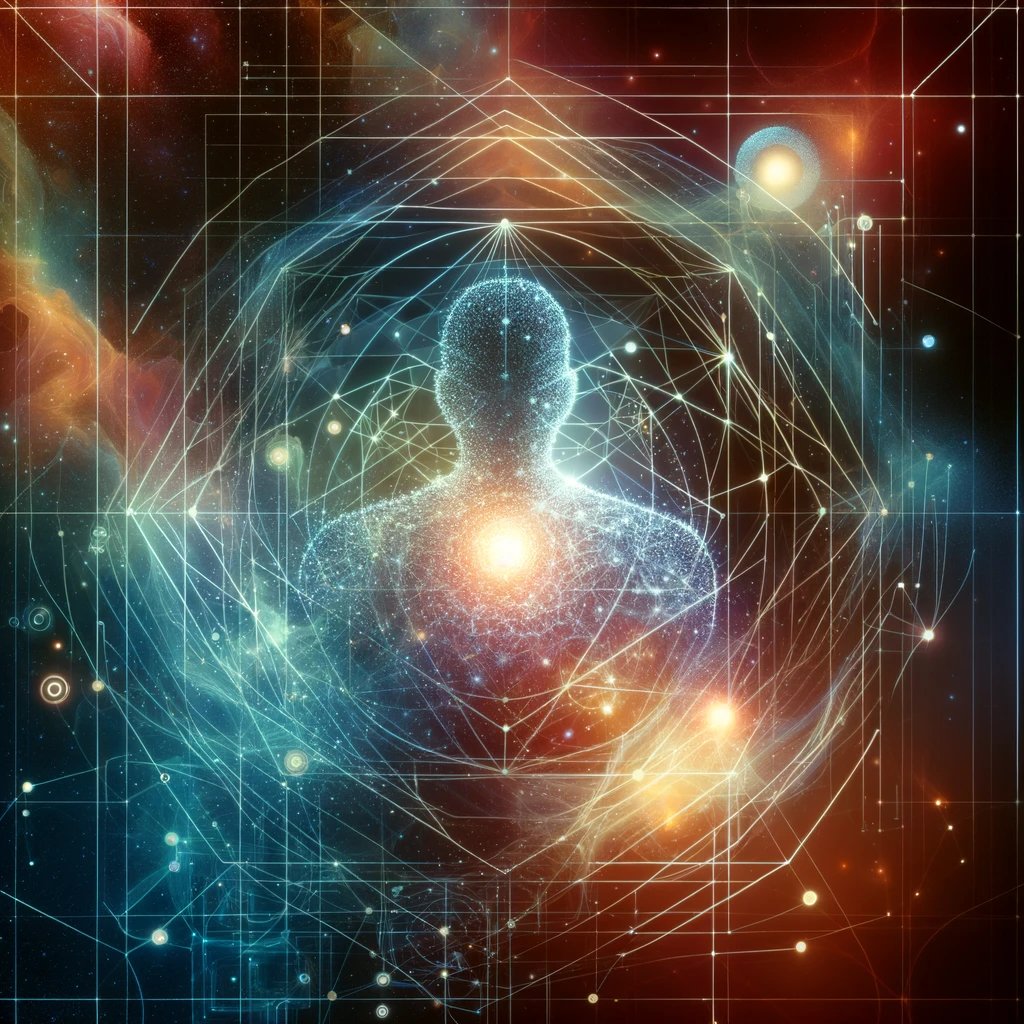
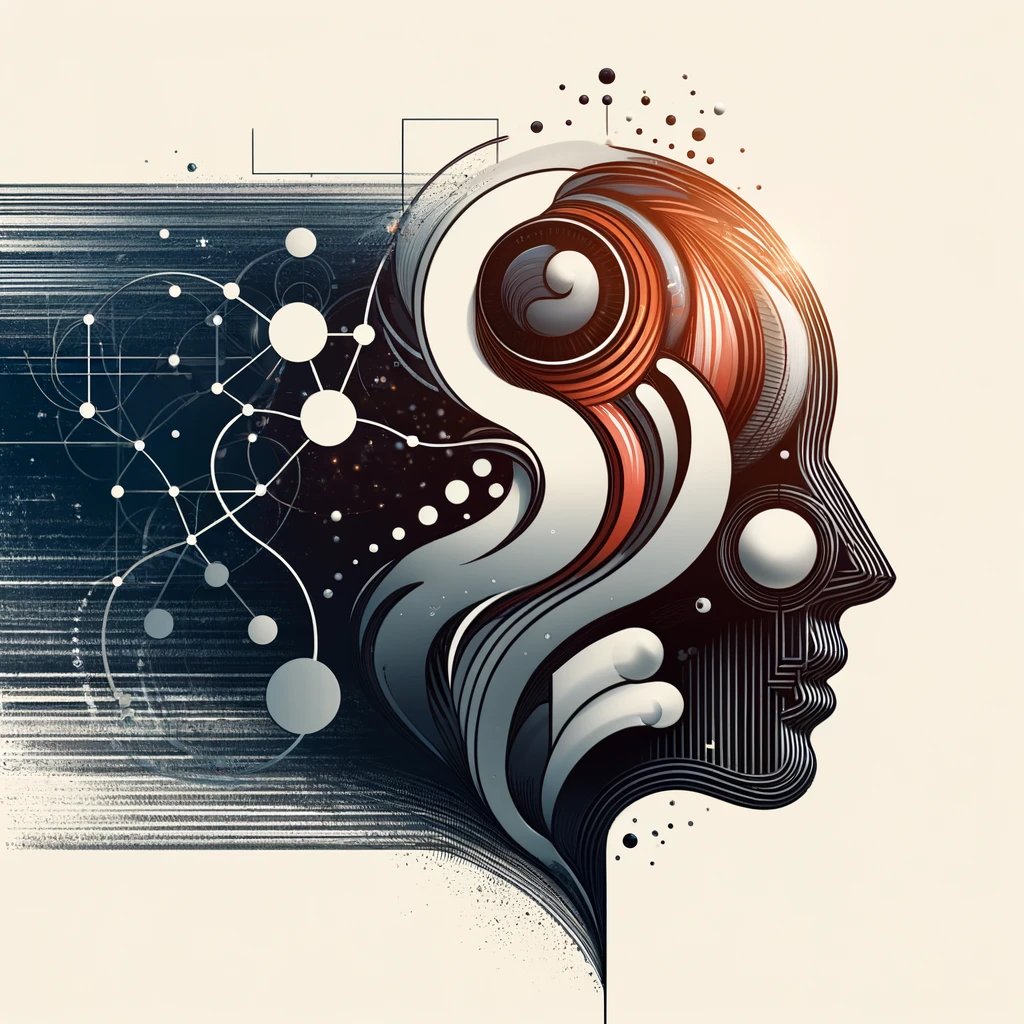



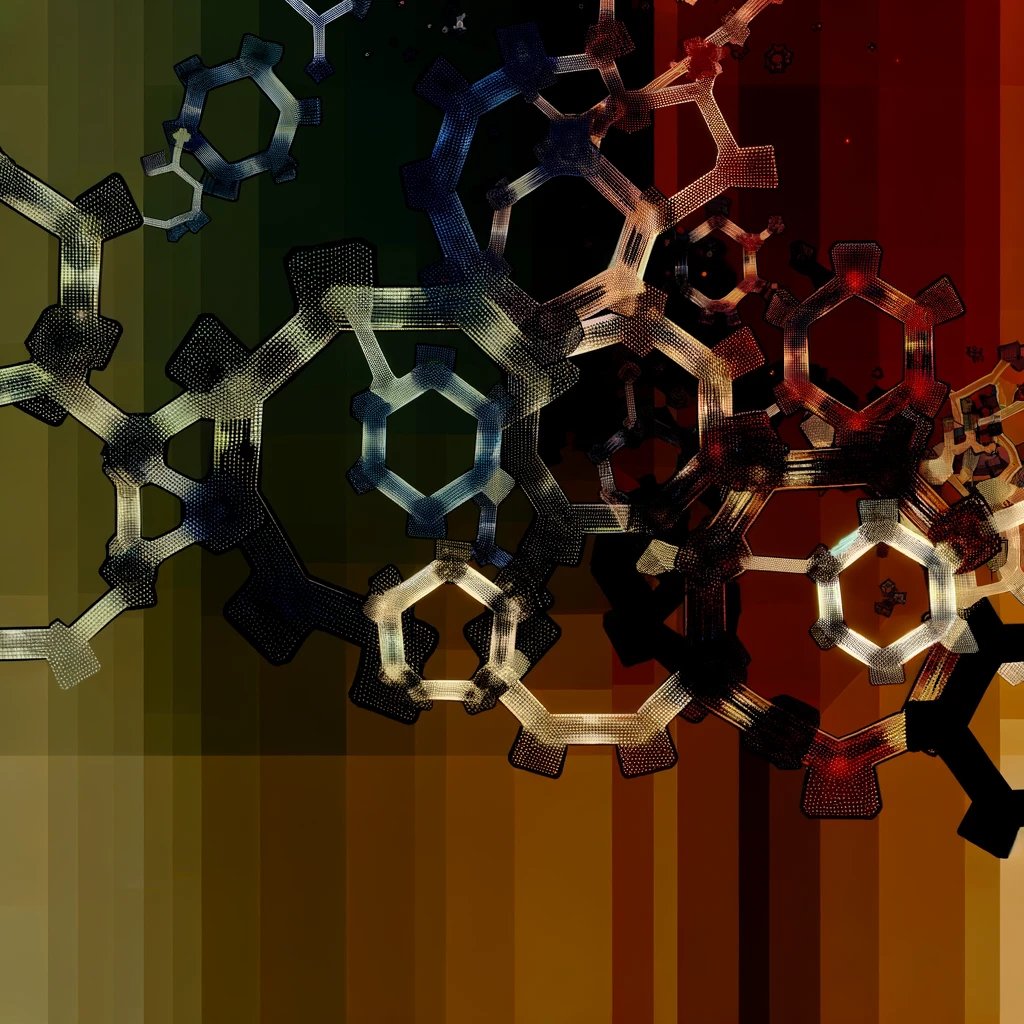
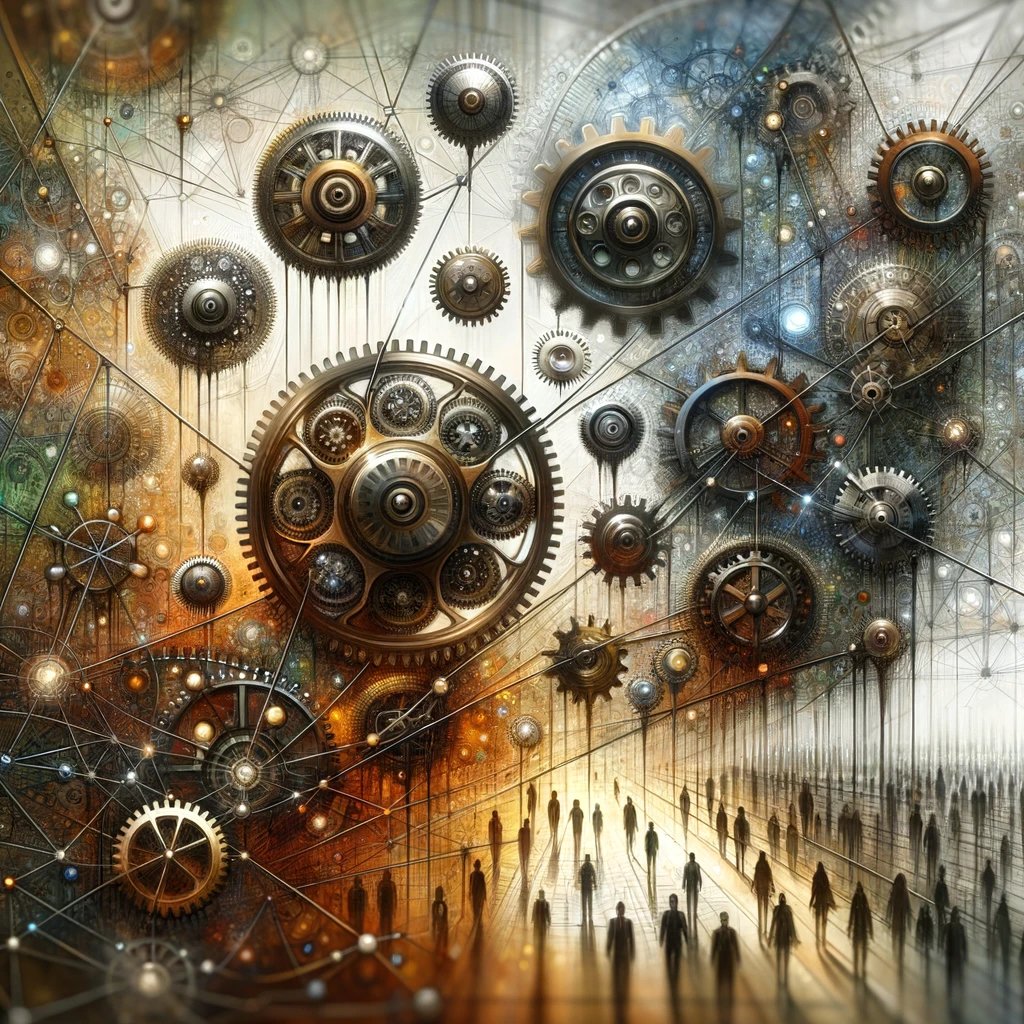
































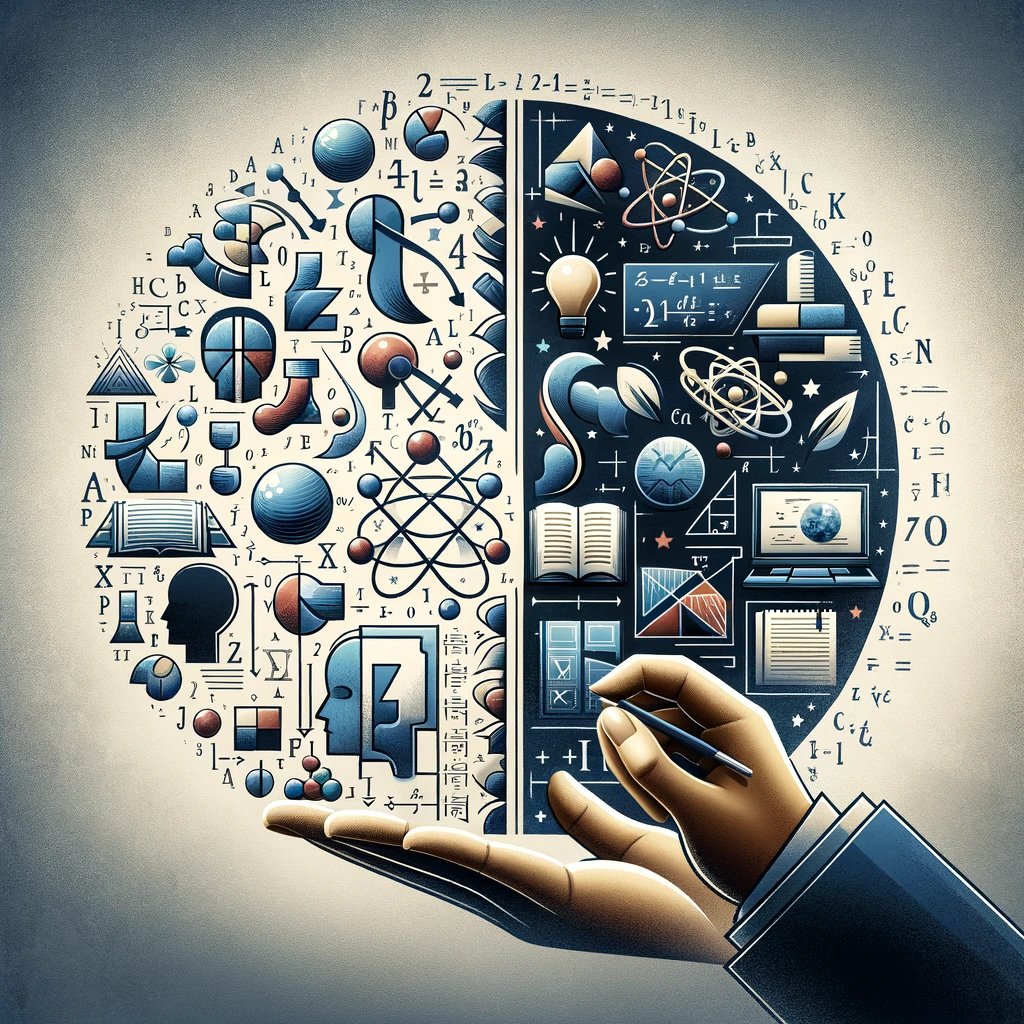

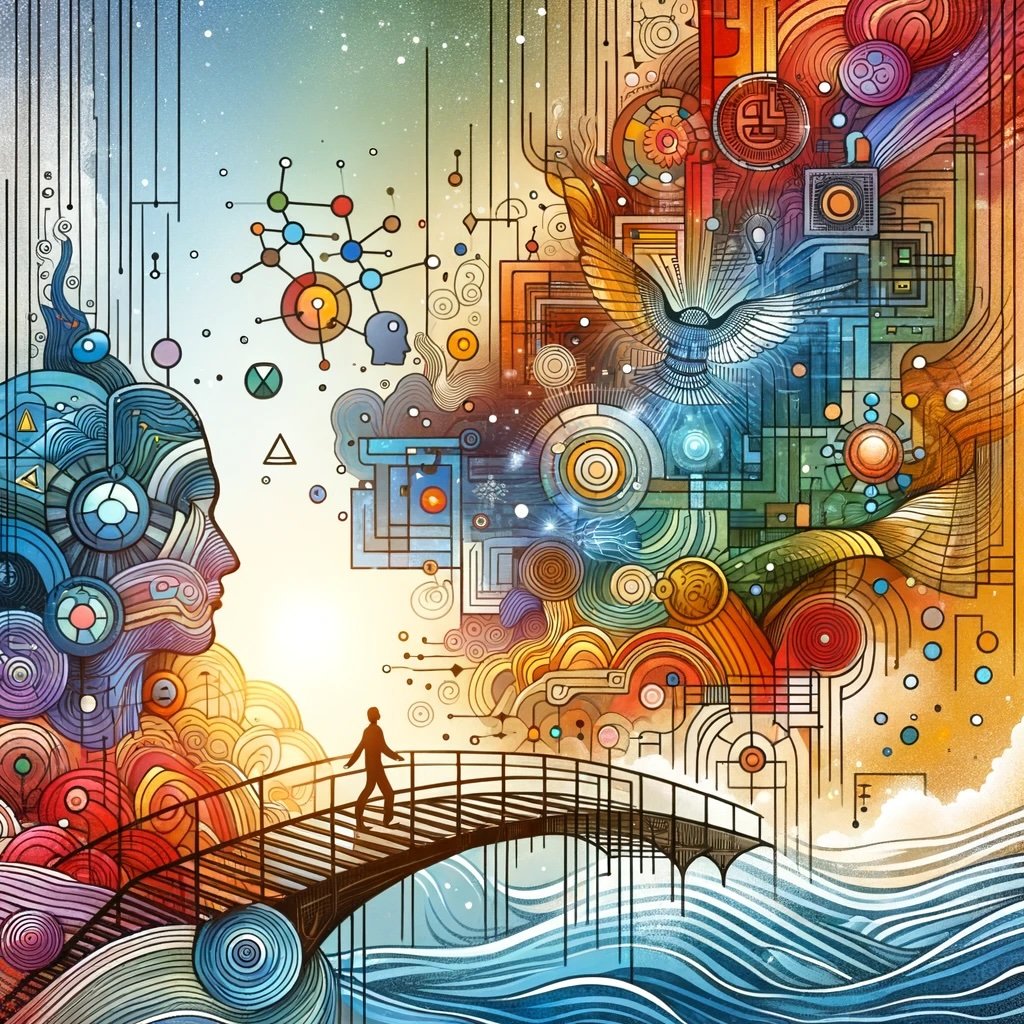

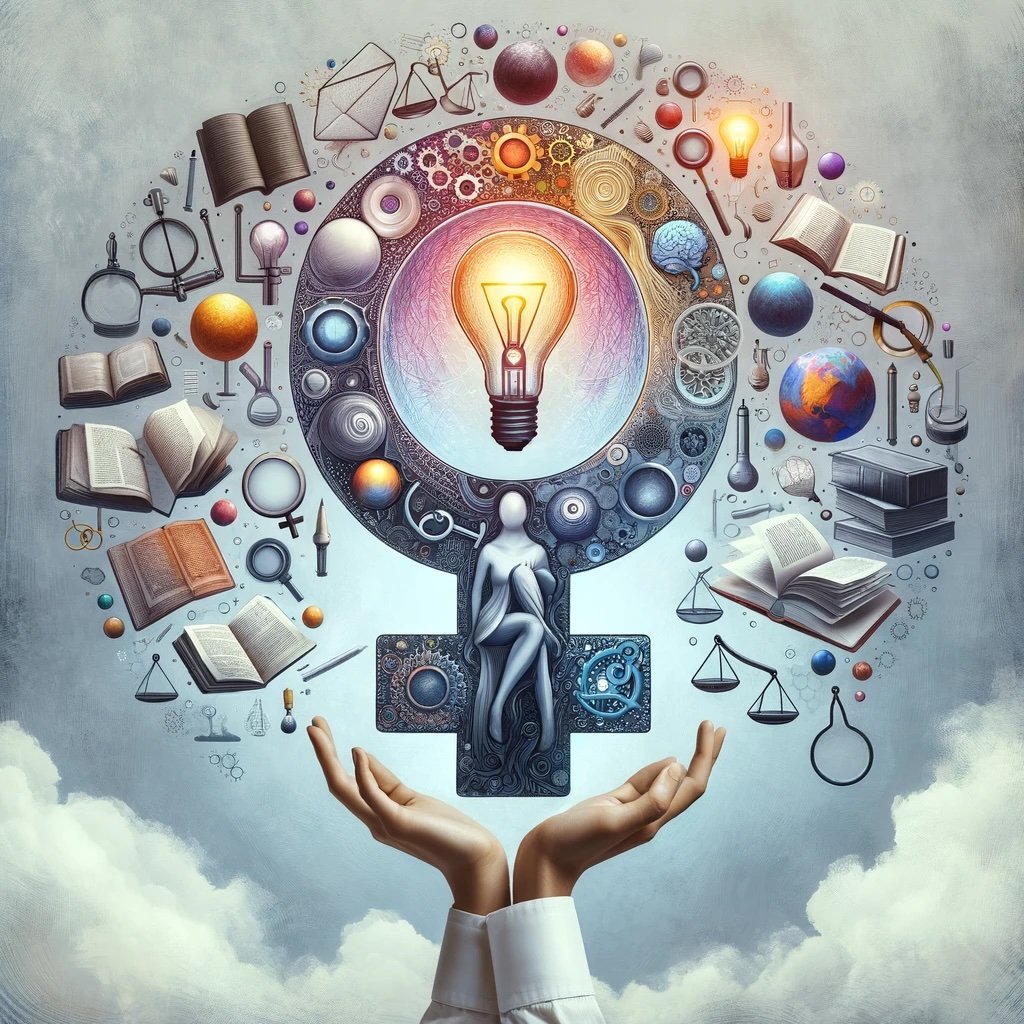












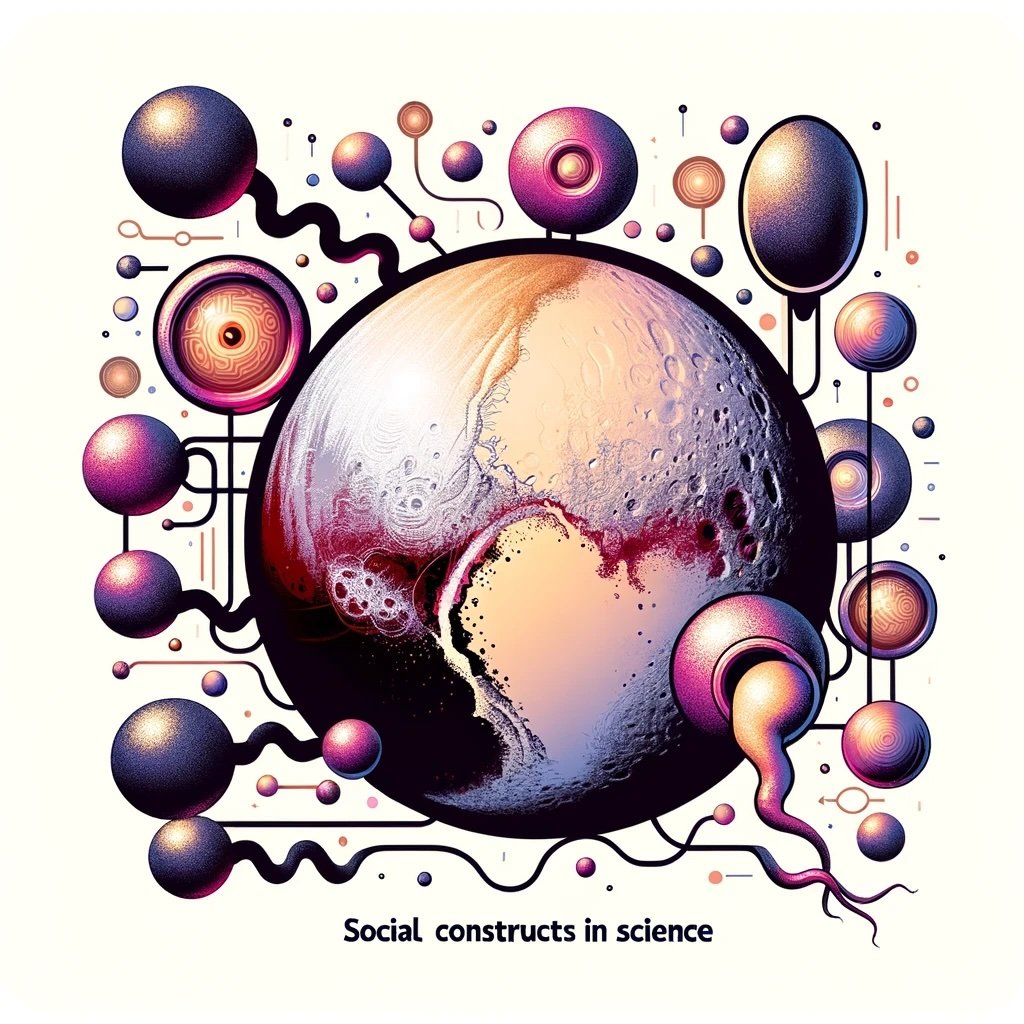
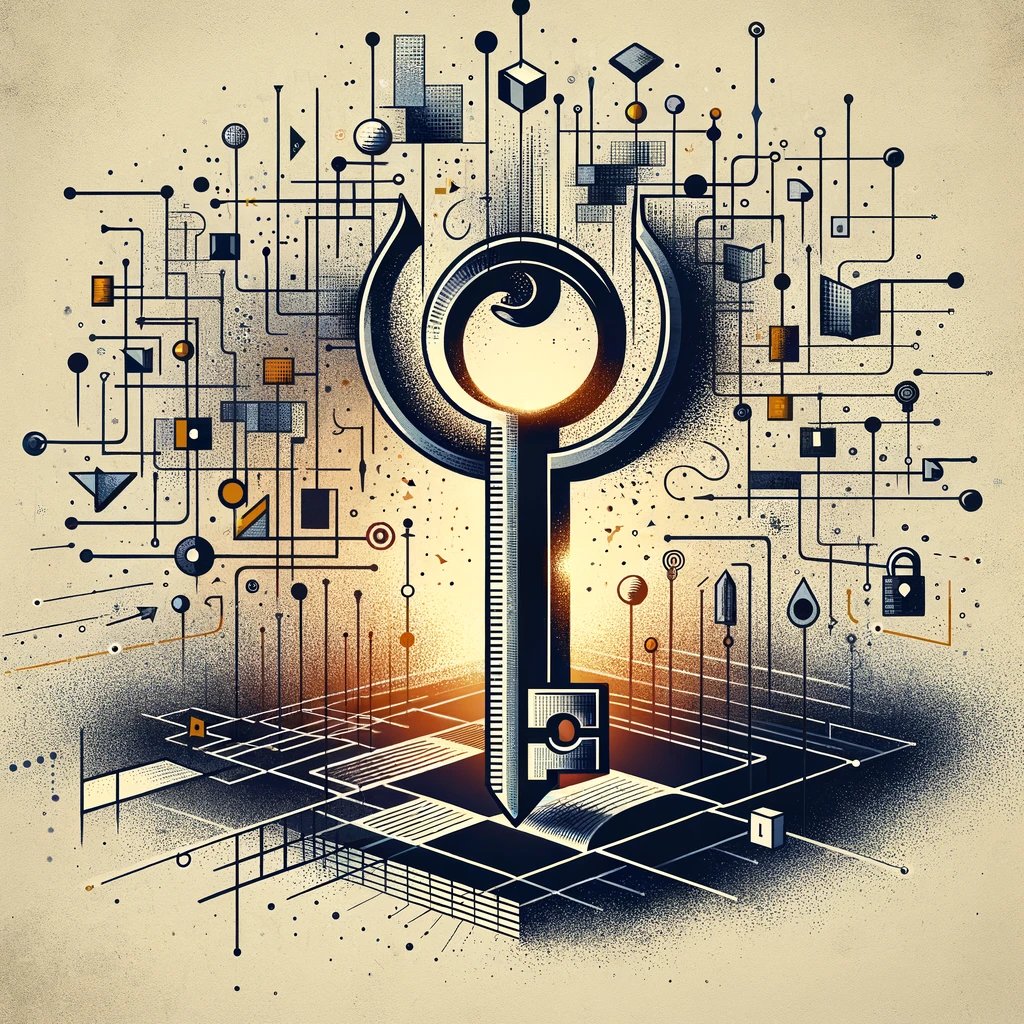










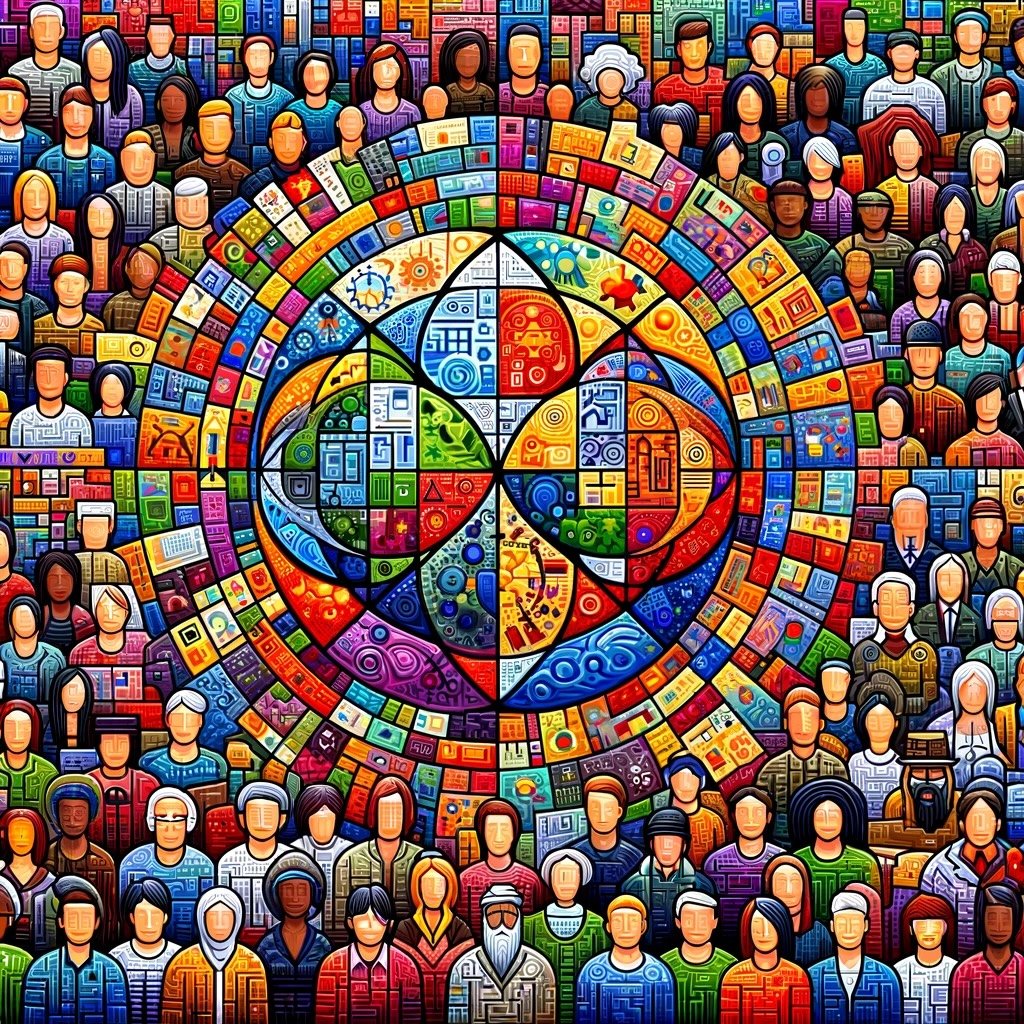








Examining the ways populism exploits incoherence and bad logic to make truth irrelevant, and the dangers this poses to political discourse.